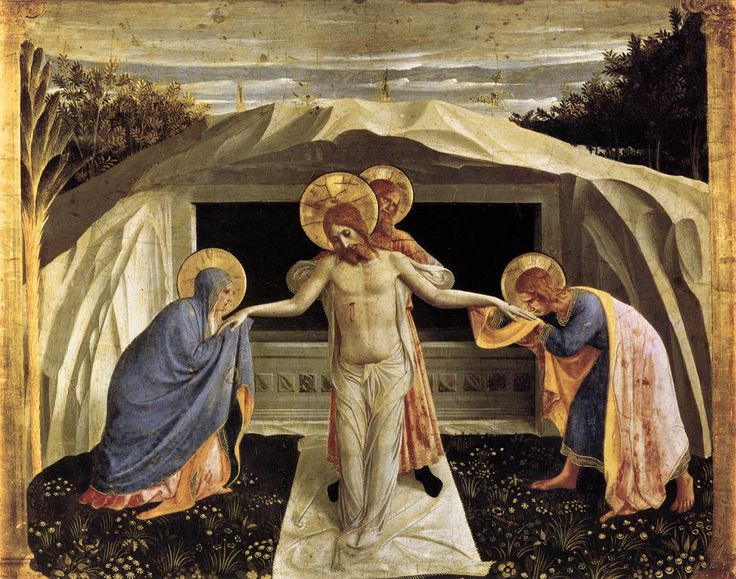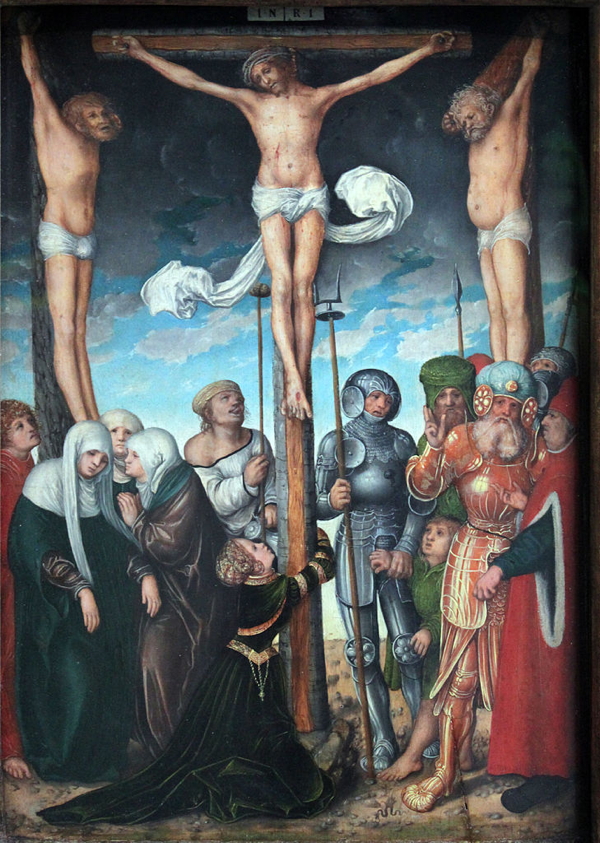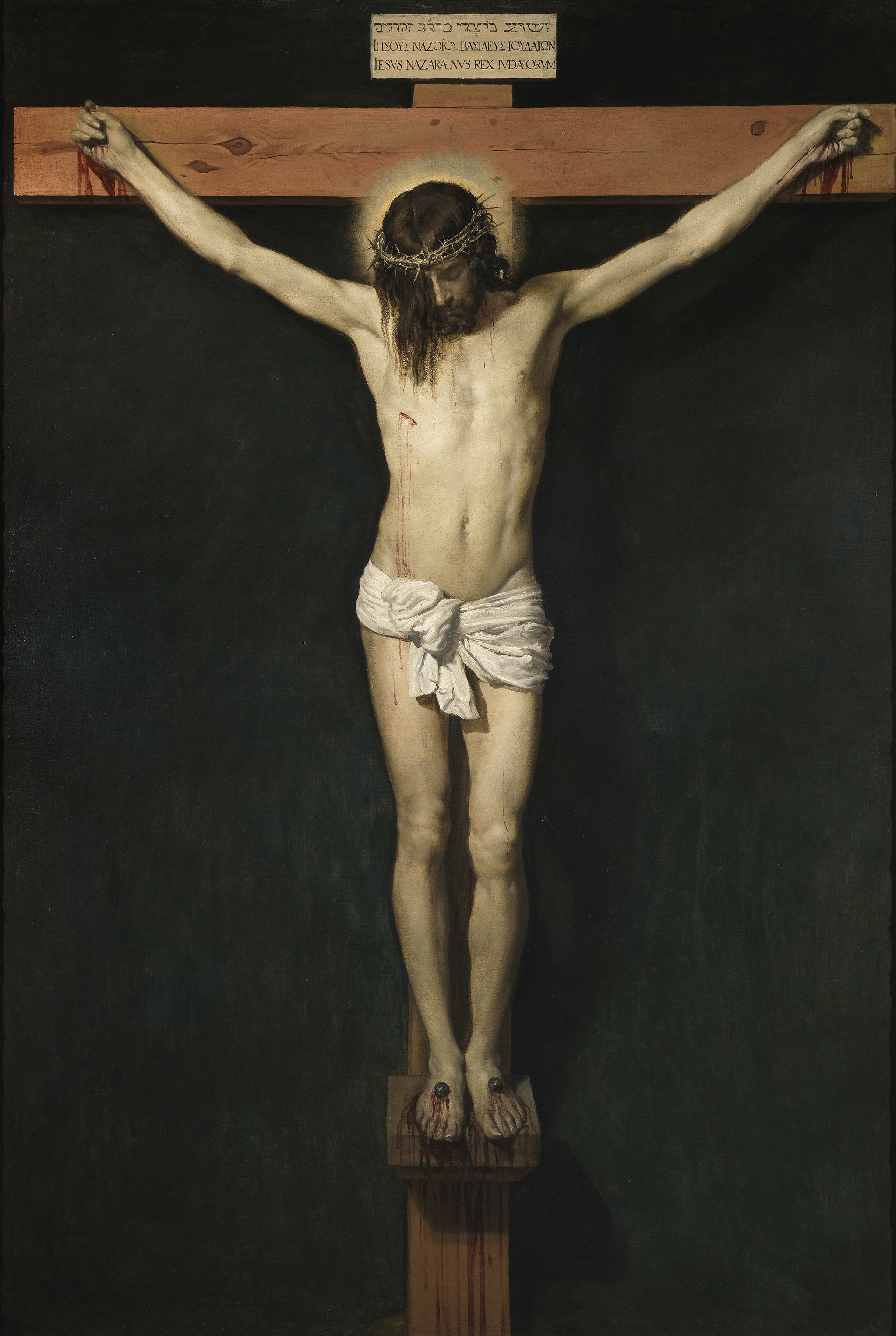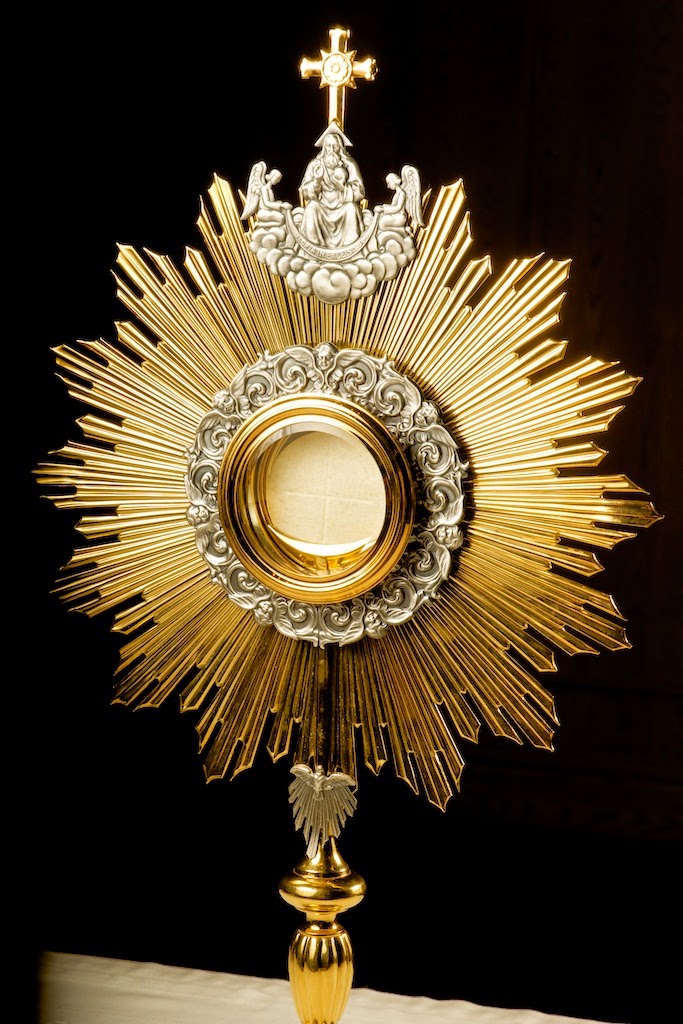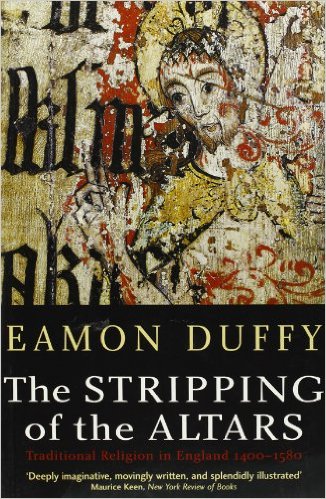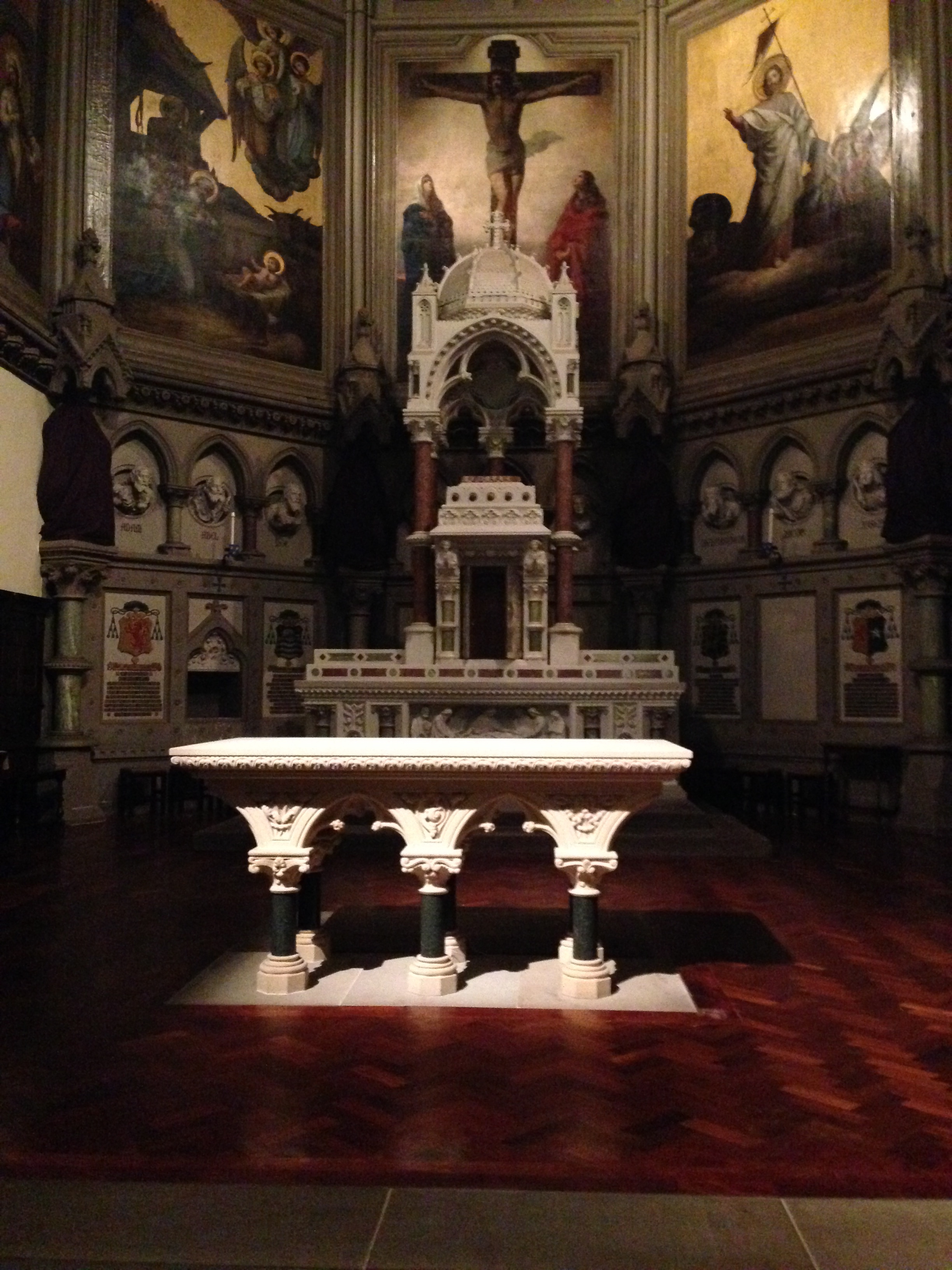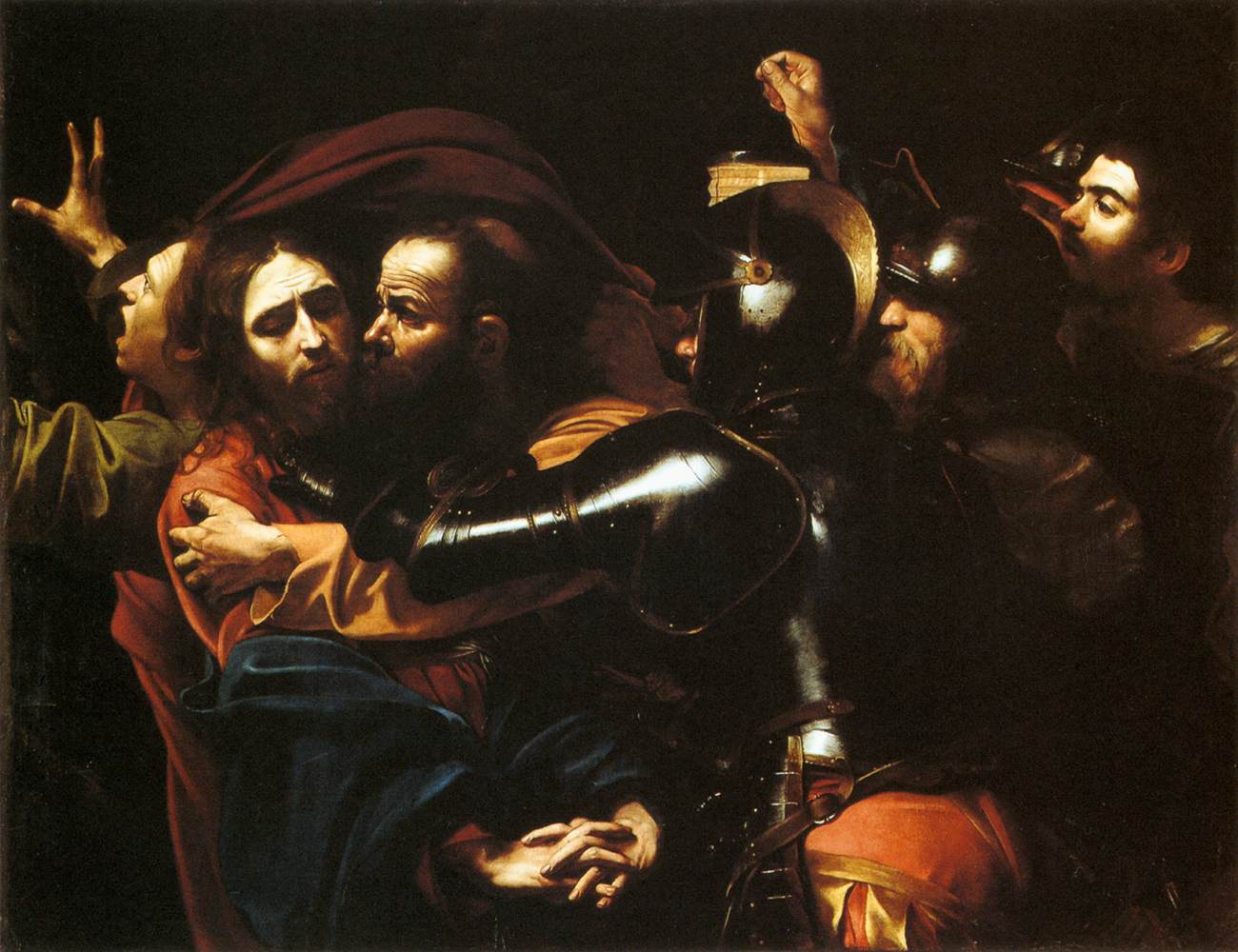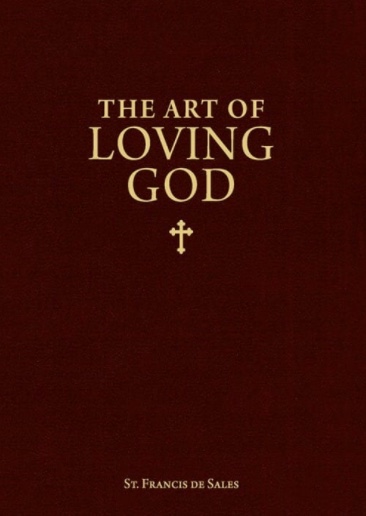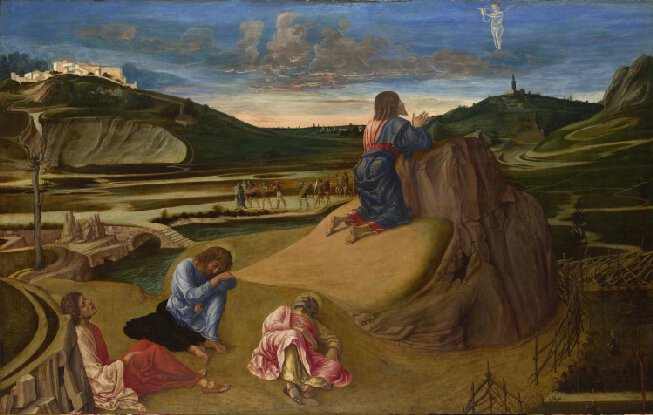-by Rev Gabriel of St Mary Magdalen, OCD, Divine Intimacy, Baronius Press, (c) 1964
Presence of God – O Jesus, crucified for love of me, show me the victory won by Your death.
MEDITATION
As soon as Jesus expired, “the veil of the Temple was torn in two … the earth quaked, the rocks were rent. And the graves were opened, and many bodies … arose,” so that those who were present were seized with a great fear and said: “Indeed this was the Son of God” (Matthew 27:51-54). Jesus willed to die in complete ignominy, accepting to the very end the mocking and ironic challenges of the soldiers, “If Thou be Christ, save Thyself” (Luke 23,39); but scarcely had He drawn His last breath, when His divinity revealed itself in such a powerful manner that it impressed even those who, up to that moment, had been jeering at Him. Christ’s death began to show itself for what it really was, that is, not a defeat but a victory: the greatest victory that the world would ever witness, the victory over sin, the victory over death, which was the consequence of sin, the victory, which restored to man the life of grace.
In offering us the Cross for adoration yesterday, the Church sang: “Behold the wood of the Cross, on which hung the salvation of the world,” and after the mournful alternations of the Improperia, or tender reproaches, she intones a hymn of praise in honor of the Cross: “Sing, my tongue, the noble triumph whose trophy is the Cross, and the victory won by the immolation of the Redeemer of the world!” Thus consideration of the Lord’s sufferings and compassion for them alternate with the hymn of victory. The supreme paradox of death and life, of death and victory, reach a unity in Jesus, in such a way that the first is the cause of the second. St. John of the Cross, describing the agony of Jesus on the Cross, affirms: “He wrought herein the greatest work that He had ever wrought, whether in miracles or in mighty works, during the whole of His life, either upon earth or in Heaven, which was the reconciliation and union of mankind, through grace, with God. And this, as I say, was at the moment and the time when this Lord was most completely annihilated in everything. Annihilated, that is to say, with respect to human reputation; since, when men saw Him die, they mocked Him rather than esteemed Him; and also with respect to nature, since His nature was annihilated when He died; and further with respect to the spiritual consolation and protection of the Father, since at that time He forsook Him ….” And he concludes: “Let the truly spiritual man…understand the mystery of the gate and of the way of Christ, and so become united with God, and let him know that the more completely he is annihilated for God’s sake, according to these two parts, the sensual and the spiritual, the more completely he is united to God and the greater is the work which he accomplishes” (Ascent of Mount Carmel, Book II, Chapter 7, Paragraph 11).
COLLOQUY
“Hail, O Cross, our only hope! You increase grace in the souls of the just and remit the faults of sinners. O glorious resplendent tree, decked in royal purple, on your arms hangs the price of our Redemption, in you is our victory, our ransom!” (cf. Roman Breviary).
“O Christ, I glance again at Your bloodstained face, and I raise my tear-filled eyes to see Your wounds and bruises. I lift my contrite, afflicted heart, to consider all the tribulations You have endured in order to seek me and to save me.
“O good Jesus, how generously have You given us, on the Cross, all You had! To Your executioners, Your loving prayer; to the thief, Paradise; to Your Mother, a son, and to the son, a Mother; to the dead, You gave back life, and you placed Your soul in Your Father’s hands; You showed Your power to the entire world, and shed, through Your wide and numerous wounds, not a few drops, but all Your Blood, to redeem a slave!… O meek Lord and Savior of the world, how can we thank You worthily?
“O good Jesus, You bow Your crowned Head, pierced by many thorns, inviting me to the kiss of peace. ‘see,’ You say to me, ‘how disfigured, torn, and annihilated I am! Do you know why? To lift you up, O wandering sheep, to put you on my shoulder and bring you to the heavenly pasture in Paradise. Now return My Love. Behold Me in My Passion. Love Me. I gave Myself to you; give yourself to Me.’ O Lord, I am grief-stricken at the sight of Your wounds; I want You to rule over me, just as You are, in Your Passion. I want to set You as a seal upon my heart, as a seal on my arm, to make me conformable to You and Your martyrdom in all I think and do.
“O good and gentle Jesus! You who gave Yourself to us as a ransom for our redemption, grant that we, unworthy though we be, may correspond with Your grace, entirely, perfectly, and in all things” (cf. St. Bonaventure).”
Love, Blessed Easter,
Matthew


